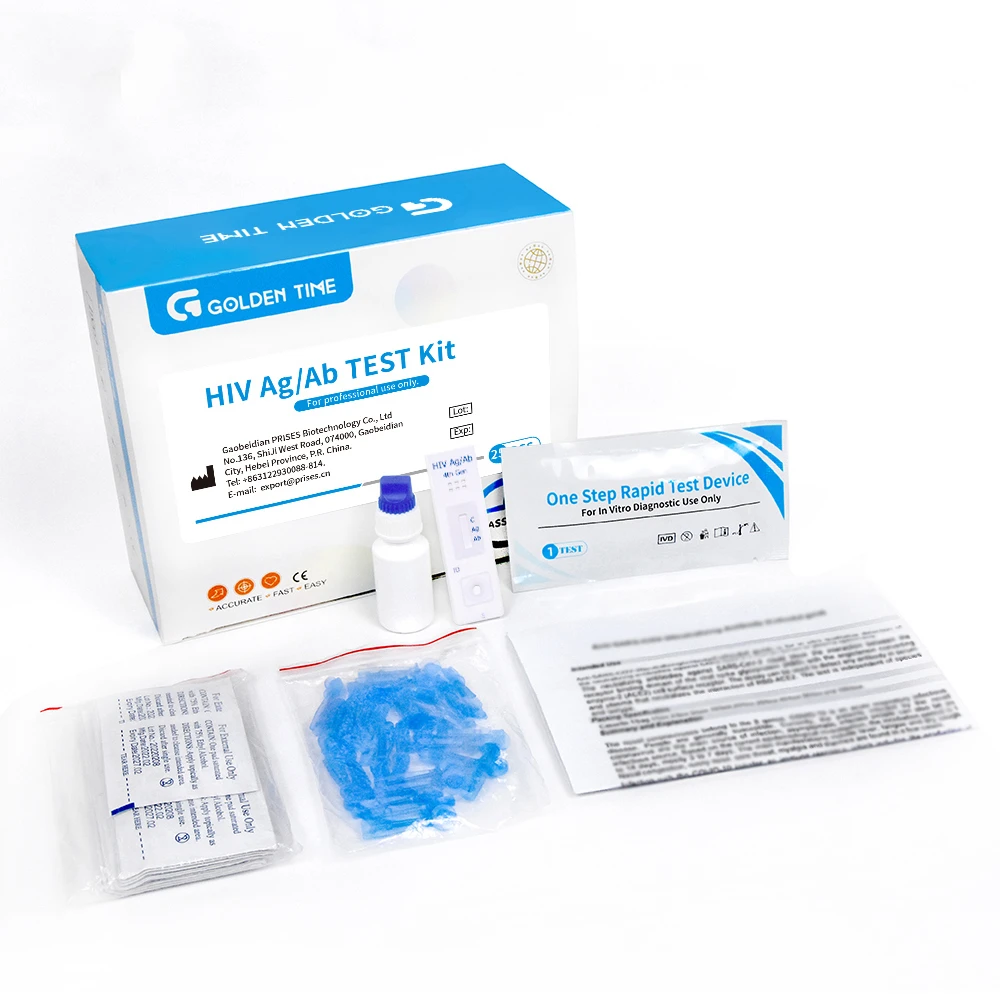Dec . 26, 2024 09:43 Back to list
Affordable Wholesale HIV Test Kits Price Suppliers for Bulk Purchasing
Wholesale HIV Test Kit Price Suppliers An Overview
In recent years, the global landscape of health awareness and testing has undergone significant shifts, particularly concerning sexually transmitted infections (STIs) such as HIV. The importance of early detection cannot be overstated, and as a result, the demand for affordable and reliable HIV test kits has progressively increased. This article delves into the factors influencing wholesale HIV test kit prices and an overview of suppliers in this vital health sector.
Understanding HIV Test Kits
HIV test kits are essential medical tools used to detect the presence of the human immunodeficiency virus in an individual. These kits come in various forms, including rapid tests, lab-based tests, self-test kits, and at-home test kits. The rapid tests are particularly popular due to their ease of use and quick results, often providing results within minutes.
Given the ongoing global efforts to combat HIV/AIDS, access to these test kits has become pivotal in enhancing healthcare outcomes. Governments, non-governmental organizations (NGOs), and healthcare providers are keenly interested in sourcing these kits at wholesale prices to maximize outreach while minimizing costs.
Factors Influencing Wholesale Prices
1. Manufacturing Costs The price of HIV test kits is significantly influenced by the costs associated with their production. This includes raw materials, labor, quality control processes, and adherence to regulatory standards. Manufacturers who can streamline their production processes often offer competitive pricing.
2. Bulk Purchase Discounts Wholesale suppliers typically provide discounts for bulk purchases. Buyers, such as health organizations and clinics, can negotiate better rates when ordering larger quantities, leading to lower per-unit costs.
3. Regulatory Compliance In various regions, HIV test kits must meet stringent regulatory requirements before they can be sold. This compliance can impact costs as manufacturers may incur additional expenses for certification and quality assurance.
4. Market Demand The demand for HIV testing can fluctuate based on health campaigns, educational initiatives, and changes in public perception regarding HIV. Suppliers must adjust their pricing strategies according to market dynamics to remain competitive.
wholesale hiv test kit price suppliers

5. Geographical Location Price variations can also arise from geographical factors. Suppliers in regions with higher healthcare funding or those with government support may offer more competitive prices compared to those in areas with limited resources.
Suppliers of Wholesale HIV Test Kits
Several reputable suppliers have emerged in the global market, each focusing on different aspects of HIV test kit distribution. Key suppliers often specialize in distinct areas
1. Local Manufacturers Many countries have local manufacturers that produce HIV test kits, which can significantly reduce shipping costs and import tariffs. These suppliers are often well-versed in regional needs and sensitivities.
2. International Distributors Global health organizations and international distributors often procure HIV test kits from manufacturers worldwide. These suppliers typically offer a wide range of products and can provide comprehensive logistical support.
3. Online Platforms E-commerce platforms have become popular venues for purchasing HIV test kits wholesale. Suppliers list their products along with competitive prices, and buyers can easily compare options and make informed purchases.
4. Non-Profit Organizations Some NGOs focus on providing HIV test kits at reduced prices to underserved communities. They often collaborate with manufacturers to distribute affordable testing solutions more widely.
Conclusion
The rising demand for HIV test kits underscores the importance of affordable access to testing and early detection in tackling the HIV/AIDS epidemic. Wholesale HIV test kit price suppliers play a crucial role in ensuring that these vital health tools are available to a broad audience. By understanding the various factors influencing pricing and identifying reliable suppliers, healthcare providers can enhance their testing capabilities, ultimately contributing to improved health outcomes in communities worldwide.
As awareness continues to grow and technology advances, the landscape of HIV testing will continue to evolve, emphasizing the need for ongoing innovation and accessibility in the fight against this global health challenge.
-
Rapid Canine Corona Test: Fast & Accurate Results
NewsAug.06,2025
-
Rapid BZO Test Kit - Fast & Accurate Benzodiazepines Detection
NewsAug.04,2025
-
China Nylon Flocking Swabs - AI Enhanced Quality Collectors
NewsAug.03,2025
-
Highly Accurate hCG Pregnancy Test Strips - 5 Min Results
NewsAug.02,2025
-
Premium Empty ABS Plastic Cassettes: Durable & Lightweight Storage
NewsAug.01,2025
-
Accurate Cocaine (Coc) Rapid Test Kit | Fast & Reliable Detection
NewsJul.31,2025

